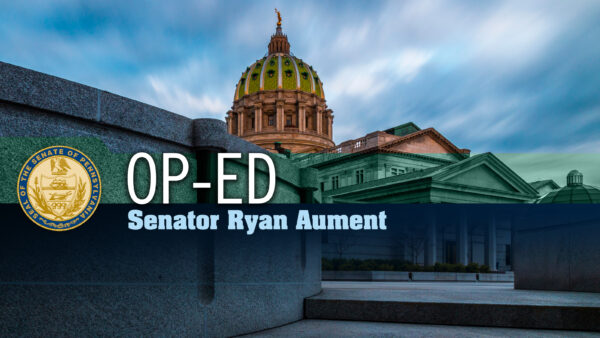
By Sen. Ryan Aument (R-36)
As many know, the U.S. Supreme Court struck down President Biden’s student loan forgiveness proposal on June 30. While this ruling is a win for taxpayers, there are still millions of Americans with trillions of dollars in outstanding student loans who now need to pay back that debt.
I applaud the high court’s ruling, but we can’t ignore the student loan debt crisis either. There are steps that we can and should take to help borrowers, protect taxpayers, and strengthen Pennsylvania’s economy.
While it’s true that some of these borrowers have not budgeted well and will struggle to repay their loans because they were irresponsible with their money, the reality is that most of these borrowers are trapped in a system that was designed for them to fail. They’ve been diligently making monthly payments for years without even putting a dent in their overall debt due to excessively high interest rates.
And while I agree with those who are celebrating the court’s decision to block total loan forgiveness, I also recognize that we have a serious problem that we cannot ignore.
We must do something about the student loan debt crisis. We must fix the flaws in a system that’s no longer serving students – but preying on them instead. And we must do so without forcing taxpayers to repay a debt that isn’t theirs. In fact, many taxpayers have already made sacrifices to fully repay their own student debt.
I oppose blanket student loan forgiveness like what President Biden proposed. But I also recognize that the student loan debt crisis is bankrupting generations of Americans. The long-term economic consequences will impact all of us.
There is a reasonable middle ground.
We can and should take steps to help students repay their loans instead of simply letting them off the hook. We shouldn’t just push personal accountability aside – these borrowers took out the loans and it is their responsibility to pay them back. But when millions of Americans ARE responsibly repaying their debt with no hope of getting their balance down to zero, it’s clear that our system is not working.
This is not a personal money management problem – this is a broken system that’s unfairly taking advantage of millions of borrowers and profiting off it.
Younger generations don’t need loan forgiveness – they need the same opportunities their parents and grandparents had to gain meaningful employment, buy a home, raise a family, and build vibrant communities. But when 75% of jobs require a bachelor’s degree, the average annual cost of college tuition has increased more than 3,000% since 1969, and interest rates to repay those loans are as high as 15% – students these days don’t stand a chance.
We must find solutions that emphasize personal responsibility AND protect taxpayers. I’ve proposed legislation that will allow borrowers to repay their debt under more manageable terms – without asking taxpayers to pick up the tab.
I also believe we should reconsider how we fund institutions of higher education, and work with stakeholders to establish a performance-based funding model to hold these institutions accountable for the tuition they charge and the results they produce. I sponsored legislation that established the Higher Education Funding Commission to do just that. The Commission should quickly reconvene to continue its work evaluating how we can strengthen student outcomes and make higher education more affordable and accessible for all Pennsylvanians.
There is no single solution that will fix this system that’s failed millions of Americans. Ensuring younger generations have the same opportunities as baby boomers and Generation X members will require a multi-faceted approach, but blanket student loan forgiveness shouldn’t be part of that. So let’s come together to address this crisis in a responsible way that helps students without burdening taxpayers, because in the end it will benefit all generations of Pennsylvanians.


